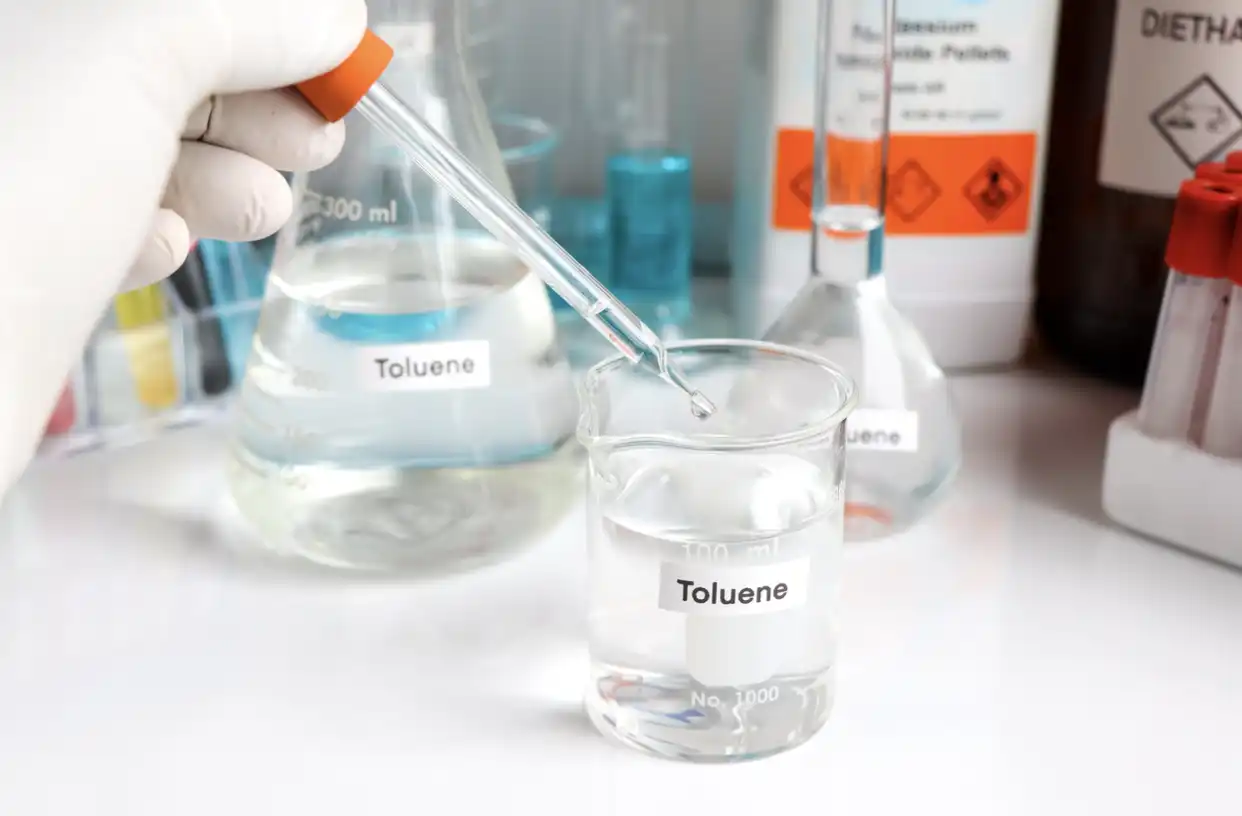
Diethyl Phthalate (DEP) is an organic compound with the chemical formula C₈H₁₀O₄. It is a colorless, oily liquid that is commonly used as a plasticizer and as a solvent in a variety of industrial, consumer, and pharmaceutical applications. Diethyl phthalate is one of the many phthalate esters, which are widely used to make plastics more flexible and durable.
Schlüsseleigenschaften:
- Aussehen: Diethyl phthalate is a colorless, oily liquid with a mild odor.
- Siedepunkt: The boiling point is around 293°C (559°F).
- Löslichkeit: It is soluble in alcohols, Aceton, and other organic solvents but only slightly soluble in water.
- Viscosity: Diethyl phthalate has a relatively low viscosity, which makes it suitable for use in various formulations.
- Density: Around 1.118 g/cm³ at 20°C.
- Geruch: It has a mild, pleasant, slightly aromatic odor.
Allgemeine Anwendungen:
- Weichmacher: Diethylphthalat wird hauptsächlich als plasticizer für PVC (Polyvinylchlorid) und andere Kunststoffe verwendet, um die Flexibilität, Bearbeitbarkeit, und Haltbarkeit zu verbessern. Es hilft, Kunststoffe zu weichen, sie flexibler und formbar zu machen.
- Lösungsmittel in Duften: Es wird häufig als Lösungsmittel in der Parfüm- und Kosmetikindustrie, es hilft, andere Komponenten in Duftformulierungen zu lösen.
- Kosmetik: DEP wird in Produkten wie Nagellack, Sonnenschutzmittel, und Lotionen. Es verbessert die Glattheit und Verbreitbarkeit dieser Produkte und hilft bei der Stabilisierung von Duften.
- Pharmazeutika: Es wird als Hilfsmittel (inaktiver Inhaltsstoff) in der pharmazeutischen Industrie, hauptsächlich in der Formulierung von Medikamenten, insbesondere in Formulierungen mit kontrollierter Freisetzung oder bei der Herstellung bestimmter Arten von Pillen und Kapseln.
- Insektenabwehrmittel: Diethylphthalat wurde bei der Herstellung von Insektenabwehr verwendet, insbesondere in Kombination mit anderen Wirkstoffen.
- Andere Anwendungen: Es wird als Trägerlösungsmittel in Farben, Beschichtungen, Tinten, und Reinigungsmittel.
Sicherheits- und Umweltbedenken:
- Gesundheitsrisiken: Während Diethylphthalat als weniger toxisch im Vergleich zu einigen anderen Phthalaten angesehen wird, es hat Bedenken aufgrund seines Potenzials als endokriner Störer. Langfristige oder hohe Exposition kann zu Gesundheitsproblemen führen, insbesondere im Zusammenhang mit der Reproduktionsgesundheit und der Hormonregulierung.
- Haut- und Augenreizung: DEP kann Reizung verursachen, wenn sie direkt mit der Haut oder den Augen in Kontakt steht.
- Inhalationsrisiken: Inhalation von Dämpfen kann Atemwegsreizungen oder andere gesundheitliche Auswirkungen in engen Räumen verursachen.
- Umweltauswirkungen: Diethylphthalat ist giftig für Wasserorganismen und kann in der Umwelt bestehen. It is important to prevent its release into water bodies and ecosystems, as it may cause harm to aquatic life.
- Regulatory Status: Due to its potential health risks, the use of DEP, like other phthalates, is regulated in certain products. For example, its use in children's toys and products that come into direct contact with food is restricted in many countries.
CAS-Nummer: 84-66-2
Die CAS-Nummer for Diethyl phthalate is 84-66-2, which is used for identification in regulatory, scientific, und industriellen Kontexten verwendet wird.
Schlussfolgerung:
Diethyl phthalate is a widely used plasticizer and solvent in various industries, including plastics, cosmetics, and pharmaceuticals. While it offers valuable properties like flexibility and solvency, it raises concerns due to its potential endocrine-disrupting effects. As such, its use is subject to regulation, and alternatives are being explored in response to health and environmental concerns.



